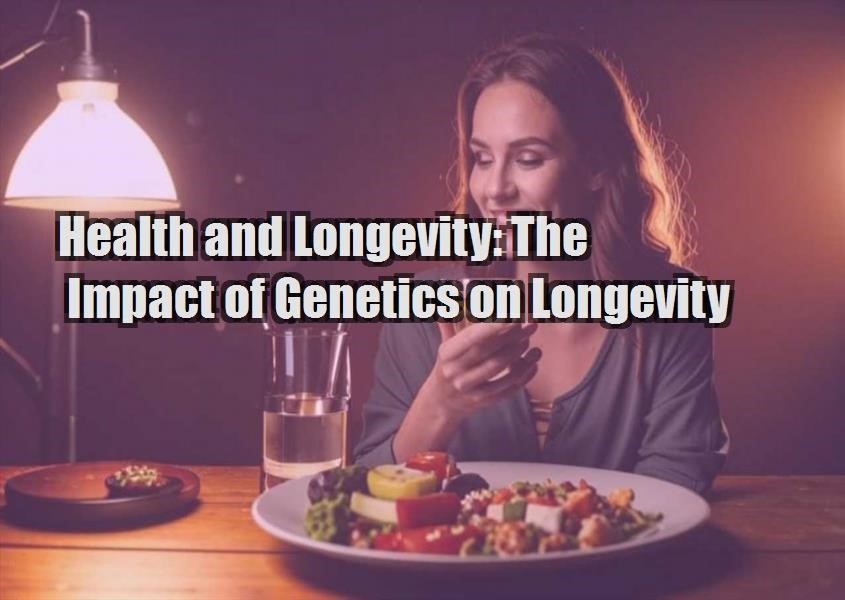Longevity, or the length of time an individual lives, is influenced by a variety of factors, including lifestyle choices, environmental influences, and genetics. Understanding the impact of genetics on longevity is crucial for both scientific research and personal health management. This article delves into the genetic factors that contribute to lifespan and explores how they interplay with other determinants of health.
The Role of Genetics in Longevity
Genetics play a significant role in determining an individuals lifespan. Research has shown that about 20-30% of the variation in human lifespan can be attributed to genetic factors. The influence of genetics on longevity can be observed through family studies, where the lifespan of parents often correlates with that of their offspring.
Specific genes have been identified that are associated with increased longevity. These genes are involved in various biological processes, including DNA repair, inflammation regulation, and metabolism. For instance, the FOXO3 gene is well-known for its association with longevity. Variants of this gene are linked to increased lifespan and better resistance to age-related diseases.
Genetic Variants and Longevity
Several genetic variants have been identified that contribute to longevity. These include:
- FOXO3: As mentioned, the FOXO3 gene is associated with longevity. It plays a role in cellular processes that affect aging, such as oxidative stress resistance and apoptosis.
- APOE: The APOE gene is linked to cholesterol metabolism and cardiovascular health. Certain variants of APOE are associated with longer lifespan and reduced risk of Alzheimers disease.
- IGF1R: The insulin-like growth factor 1 receptor (IGF1R) gene is involved in growth and development. Variants of this gene are associated with increased lifespan and reduced risk of age-related diseases.
Genetic Pathways Influencing Longevity
Genetic pathways that influence longevity often involve mechanisms related to maintenance and repair. These pathways include:
- DNA Repair: Efficient DNA repair mechanisms are crucial for preventing mutations and maintaining genomic stability. Genes involved in DNA repair, such as those in the sirtuin family, play a significant role in longevity.
- Inflammation Regulation: Chronic inflammation is associated with many age-related diseases. Genes that regulate inflammation, such as IL-6 and TNF-α, can impact lifespan by influencing the bodys inflammatory response.
- Metabolic Regulation: Metabolic pathways, including those regulated by the mTOR and AMPK genes, are essential for cellular energy balance and longevity. These pathways influence processes like autophagy, which helps remove damaged cellular components.
Interaction of Genetics with Lifestyle and Environment
While genetics play a crucial role in longevity, they do not act in isolation. The interaction between genetic factors and lifestyle choices significantly impacts an individuals lifespan. Healthy lifestyle practices, such as a balanced diet, regular exercise, and avoiding harmful habits like smoking, can enhance the positive effects of longevity-associated genes.
Environmental factors, such as access to healthcare, socio-economic status, and exposure to pollutants, also interact with genetic predispositions. For instance, individuals with a genetic predisposition to cardiovascular diseases may reduce their risk through healthy lifestyle choices and medical interventions.
Epigenetics and Longevity
Epigenetics, the study of changes in gene expression without altering the DNA sequence, plays a significant role in longevity. Epigenetic modifications can be influenced by environmental factors and lifestyle choices, affecting how genes associated with aging are expressed.
Examples of epigenetic modifications include DNA methylation and histone modification. These changes can activate or silence genes, impacting biological processes related to aging and longevity. Research in epigenetics offers promising insights into how lifestyle and environmental factors can modify genetic predispositions to enhance longevity.
Genetic Testing and Personalized Health Strategies
Advancements in genetic testing have made it possible to identify genetic variants associated with longevity. Genetic testing can provide valuable insights into an individuals predisposition to certain age-related diseases and their potential lifespan. This information can be used to develop personalized health strategies that optimize longevity and overall well-being.
Personalized health strategies based on genetic information can include tailored diet plans, exercise regimens, and medical interventions. By understanding their genetic makeup, individuals can make informed decisions about their health and take proactive measures to mitigate risks associated with aging.
Ethical Considerations in Genetic Testing
While genetic testing offers numerous benefits, it also raises ethical considerations. Issues related to privacy, discrimination, and psychological impact must be carefully addressed. It is essential to ensure that genetic information is used responsibly and that individuals have access to proper counseling and support when interpreting their genetic test results.
Future Directions in Longevity Research
Ongoing research in genetics and longevity continues to uncover new insights into the complex interplay between genes, environment, and lifestyle. Advances in technology, such as next-generation sequencing and CRISPR gene editing, hold promise for further understanding and potentially manipulating genetic factors to enhance longevity.
Researchers are also exploring the potential of gene therapy and regenerative medicine to address age-related diseases and promote healthy aging. By targeting specific genetic pathways, these innovative approaches aim to extend lifespan and improve the quality of life for aging populations.
Conclusion
The impact of genetics on longevity is a fascinating and rapidly evolving field of study. While genetic factors significantly influence lifespan, they interact with lifestyle choices and environmental influences to shape an individuals overall health and longevity. Understanding these interactions can lead to personalized health strategies that optimize well-being and extend lifespan.
As research in genetics and longevity progresses, the potential to unlock new pathways to healthy aging becomes increasingly promising. By embracing a holistic approach that combines genetic insights with healthy lifestyle practices, individuals can take proactive steps toward achieving a longer, healthier life.







